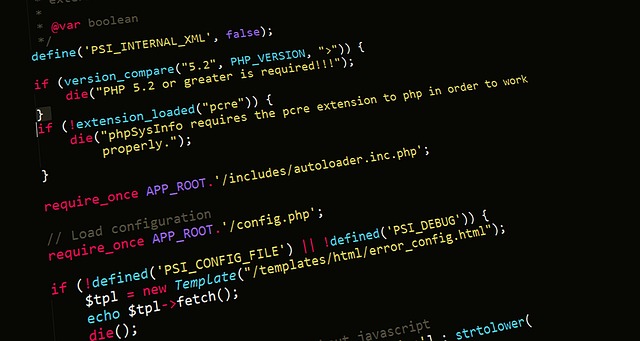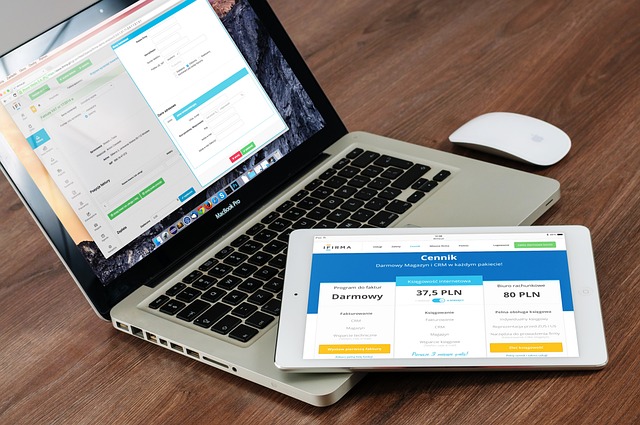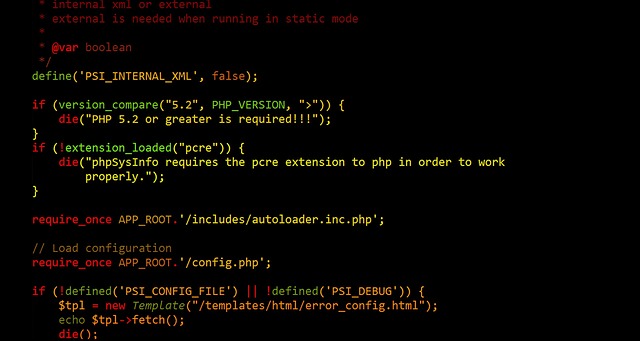Use references from sources listed in 2 paragraph and reference them in all 4 paragraphs.
ERP stands for Enterprise Resource Planning, which is an integral part of any business’s operations. ERP solutions can help organizations streamline their processes and workflows, while at the same time providing accurate and reliable data. So, how do you identify the best ERP solution provider company for your business? What factors should you consider while selecting the right partner? Are there any differences between the various providers and their platforms that could affect your decision-making?
The business environment is ever-evolving and competitive, and organizations need to stay well-versed with the latest ERP and technological advancements in order to ensure they remain competitive. Selecting the right ERP solution provider is key to the success of any organization. According to a McKinsey report, many organizations are not taking into account the full range of benefits that an ERP solution provides, thus limiting their potential to reach maximum business efficiency. Therefore, it is important for any organization to consider carefully the requirements it has for ERP development and implement the right solution provider that provides the most suitable platforms for their needs.
In this article you will learn about the distinct features, advantages and disadvantages of various ERP solution provider companies and how to identify which one best suits your needs. A detailed analysis of the strengths, weaknesses, opportunities and threats of the top ERP solution providers will be discussed so that you can make the right decision. Additionally, the importance of integration with other systems and services and how they affect the efficiency of the ERP solutions will be highlighted. Finally, evaluation criteria will be provided so that you can make an informed decision.
By the end of this article, readers will understand the importance of selecting the right ERP solution provider with the right features for their particular business requirements. Evaluating major ERP providers such as SAP, Oracle, Microsoft Dynamics, and Infor can help organizations to make an informed decision to get the competitive advantage they seek. The article will also discuss the factors to consider while selecting the right ERP solution provider, such as cost, ease of installation, customer service and overall satisfaction. Finally, the article highlight the importance of considering the capabilities of the available ERP solutions before making a decision.
Definitions
An Enterprise Resource Planning (ERP) solution provider is a company that provides software and services that enable businesses and organizations to optimize their daily operations and better manage their core business activities. ERP solutions typically offer comprehensive business process automation, data integration, business intelligence, and analytics capabilities. These solutions allow organizations to maximize their efficiency and gain a competitive edge in the marketplace.
ERP Solutions: ERP solutions provide an enterprise-wide platform that allows business and organizations to manage their financials, inventory, customer relationships, supply chain, workforce, and other core business activities through the use of integrated software applications. ERP systems are designed to provide an integrated view of business activities, allowing for streamlined processes and improved visibility and control.
ERP Solution Providers: ERP solution providers are companies that provide ERP software and services to businesses. ERP solution providers typically offer consulting services, training, implementation, and maintenance services as part of their business offerings. They also offer software customization services to ensure that their solutions meet the specific needs of each organization.
ERP Systems: ERP systems are combinations of hardware, software, and services that are used to create a comprehensive platform for managing the daily operations of a business or organization. ERP systems are typically scalable and able to be deployed across multiple locations and networks.
ERP Implementation: ERP implementation is the process of configuring and customizing an ERP system to meet the unique needs of a business or organization. ERP implementation involves training, software customization, data integration, and other configuration tasks.
ERP Maintenance: ERP maintenance is the process of ensuring that an ERP system is up to date and running optimally. ERP maintenance can include the addition of new features, security updates, troubleshooting, and the monitoring of system performance.
The Benefits of ERP Solutions
Advantages of ERP Solutions
Enterprise Resource Planning (ERP) solutions provide a unified, streamlined system for running an organization or business. It helps in automating processes, reducing errors and offering enhanced visibility into organizational resources and operations. ERP solutions improve efficiency and performance by streamlining business operations and reduces costs associated with manual processing. Here are some of the benefits of ERP solutions:
Integration
ERP solutions provide an integrated and comprehensive platform for an organization or business to manage all operations, from finance and accounts, to inventory and customer relationship, on a unified database. This leads to improved communication and collaboration across departments as all data is available to everyone in a centralized system. Furthermore, real-time updates reduce the need for discrepancies and eliminates chances of inconsistency.
Enhanced Visibility
ERP solutions come with powerful analytics and reporting that give organizations greater insights into their operations. This provides business owners with quality data that can be used to make informed decisions. ERP solutions offer real-time, data driven visibility into customer orders, invoices, billing, financial parameters, inventory, stock levels, personnel data and so on.
Ease of Use
ERP solutions are typically easy to use and do not require a technical background. They come with user friendly internet based dashboards and can be easily implemented and configured according to the needs of an organization. In most cases, ERP solutions also come with training and customer care, and the company’s staff can be trained quickly at minimal cost.
Cost Savings
ERP solutions replace manual, paper-based accounting and streamline operations, and streamlining operations lead to cost savings. By eliminating errors associated with manual data entry and reconciliation, ERP solutions help an organization save money from human error and labor costs. Moreover, streamlined operations, data integrity and automated processes help in improving compliance and audits while reducing costs.
Scalability
ERP solutions are resilient and can be scaled-up or down, allowing companies to adjust their operations and business strategies with minimal disruption. Organizations can also add new modules or even custom develop their own solution, making ERP solutions a must-have for companies with short and long-term objectives.
Increased Productivity
ERP solutions help in improving internal performance while reducing redundant work. They also automate certain processes, which significantly increases productivity throughout entire the organization, eliminating unnecessary manual data entry and paperwork. The automation of certain processes also helps employees focus on more strategic tasks which further increases their overall productivity.
Key Features of ERP Solutions
- Planning and execution of business processes
- Integrated finance, procurement, production, sales, and organizational solutions
- Data accuracy and real-time visibility
- In-depth analysis and reporting of business performance
- Reduction of redundancies, costs, and time
- Flexibility and scalability
- Enhanced security
- User friendly interface and simplicity
- Efficient data management
- Reduction of labor-intensive activities
Finding the Best ERP Provider Company
What is ERP and What Qualities to Consider When Choosing an ERP Provider?
Enterprise Resource Planning (ERP) is a form of business process management that enables organizations to more efficiently manage their data, processes, teams, and resources. ERP systems are typically composed of multiple modules, each designed to manage a specific function or process. To ensure a successful ERP implementation, organizations should look for a provider with a comprehensive suite of ERP modules and services to meet their specific business needs.
When selecting an ERP provider, organizations should consider a range of qualities to determine whether the provider is the best fit. Before signing any contract with a provider, organizations should consider the provider’s overall reputation, customer service, and user experience. Furthermore, organizations should analyze how easily the provider’s products and services integrate with existing systems and operations. Additionally, organizations should look for providers that provide timely software updates, flexible customization, and comprehensive support services.
Factors to Consider When Evaluating an ERP Solution
In addition to selecting the right provider, organizations should also evaluate the ERP solution itself. Organizations should consider the software’s flexibility, scalability, security, and cost before making a decision. Organizations should also assess the solution’s data and reporting capabilities to ensure that the software can produce accurate reports and provide insight into key performance indicators. Furthermore, organizations should consider the solution’s user friendliness to ensure that employees and users can swiftly get familiar with the software and its tools.
Finally, organizations should determine whether the solution is compatible with their existing hardware infrastructure. Organizations must assess whether the hardware meets the software’s minimum system requirements and evaluate whether there will be any compatibility issues. Organizations should also consider any extra expenses necessary for installing or upgrading hardware to run the software.
Organizations looking to implement an ERP system should consider a range of factors when selecting the provider and solution. The decision should not be taken lightly, as choosing the wrong provider or solution can be costly and time-consuming for organizations. Organizations should be sure to weigh all of the factors before making the final decision.
Considerations for Choosing ERP Solutions
ERP Systems and its Selections Process
An Enterprise Resource Planning (ERP) system is a software system used by companies to manage their different business functions and operations such as inventory, accounting, procurement, Human Resources, customer relationship management, and analytics. This system consolidates data from across the organization and provides real-time, up-to-date business intelligence to make the business operations more efficient.
When selecting an ERP system for a company, it is important to consider a number of things. First, consider the size of the organization and the complexity of the business processes. Larger companies have very complicated business processes that require advanced capabilities to manage the operations efficiently. Smaller companies may not need as many features and capabilities and therefore, should look for simpler systems.
The scalability of the system must also be taken into account. The organization must have the capability to grow or expand its operations. For example, if the company is planning to open another branch, the ERP system must be able to accommodate an increase of operations. The organization should make sure that the system they choose can handle an expansion in staff and operations.
The budget must also be taken into consideration when selecting an ERP system. It is important to understand the cost of ownership, implementation, and maintenance of the system. Most ERP systems are not cheap and require a significant investment. Additionally, there are often hidden costs associated with implementation that should be taken into consideration.
In addition to the size of the company, the complexity of the operations, scalability, and budget, there are other factors that should be taken into account when selecting an ERP system. These include the quality and availability of training and support, customization capabilities, data security and backup, and integration with existing systems.
Conclusion
When selecting an ERP system, companies must carefully weigh the pros and cons of various ERP solutions and consider the size of the organization and the complexity of its business processes. Scalability, budget, quality and availability of training and support, customization capabilities, data security and backup, and integration with existing systems must also be taken into account. Ultimately, organizations must find the solution that best meets their needs, budget, and capabilities.
Conclusion
What is the best ERP provider? This is a question that is asked by many organizations looking for efficient and cost-effective software for their operations. With so many different options, it can be difficult to decide which ERP solution is the best for any given business. There are many factors to consider, from the features and capabilities of the software to how well the vendor can meet the business’ needs. The best way to find the best ERP provider for your business is to do thorough research and compare different options.
At our blog, we are dedicated to providing organizations with the latest information on the best ERP solution providers. We do the research, so you don’t have to. Keep checking our blog for the latest updates and new releases to find the perfect ERP solution for your business.
FAQ Section
Q: What is an Enterprise Resource Planning (ERP) system?
A: An ERP system is a software suite that is used to streamline the business processes of an organization, such as inventory management, financial management, and other services. An ERP system helps improve efficiency, reduce costs, and increase productivity.
Q: What should I look for when selecting an ERP system?
A: When selecting an ERP system, you should assess the features, capabilities, cost, ease of use, customer support, and scalability of the system. It is important to ensure it meets the needs of your organization and is able to be implemented and integrated into existing systems and processes.
Q: How do I know which ERP Trust vendor to choose?
A: When selecting an ERP vendor, it is important to research the company and assess their customer service, industry experience, and customer reviews. It is also useful to consider the company’s financial situation, since you will be trusting them with your business operations for the long term.
Q: How can I get the most out of my ERP system?
A: To get the most out of your ERP system it is important to ensure it is properly configured for your organization. It is also beneficial to use the system to its full potential by taking advantage of its features, such as analytics, forecasting, and reporting tools. You can also get the most out of your ERP system by investing in training and support for your staff.
Q: What are the benefits of using an ERP system?
A: Utilizing an ERP system can benefit organizations in numerous ways, including cost savings, reduced manual labor, improved processes and operations, better inventory management, enhanced customer service, and improved reporting. It can also help boost productivity and increase profits.



